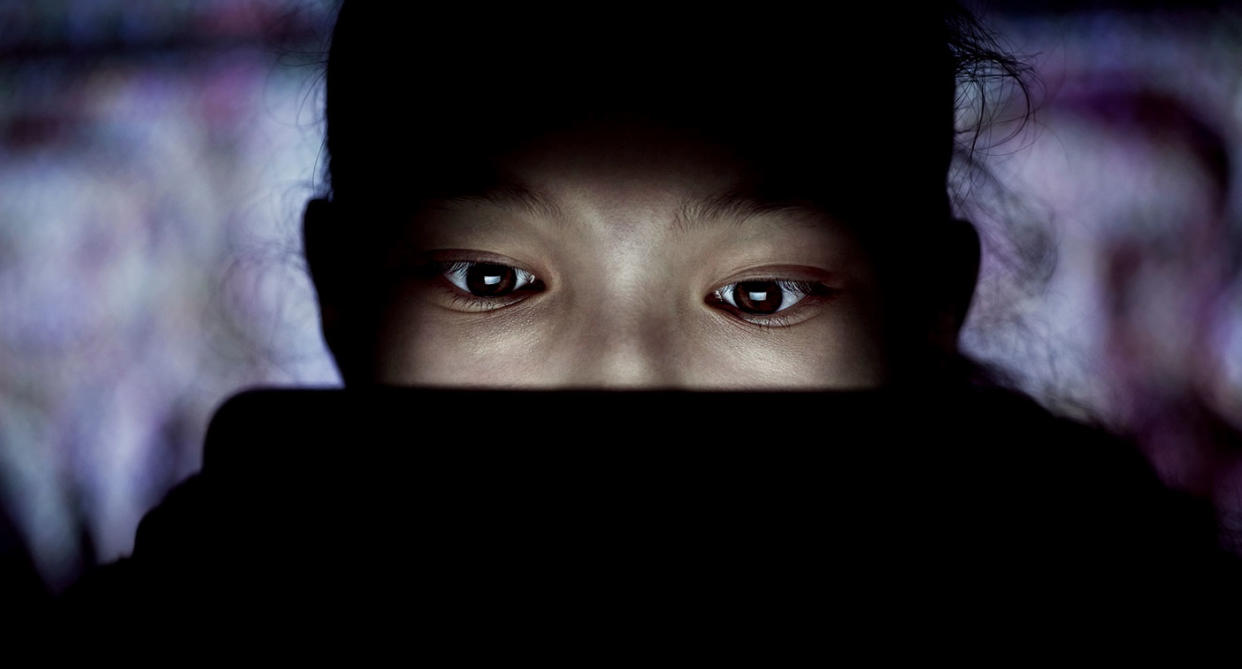How online piracy can put your kids in danger

5 February marks Safer Internet Day. All week on Yahoo Movies UK we’re going to be exploring the murky world of online piracy, how it affects the film industry and you.
Streaming has revolutionised parenting. The days of waiting for what seemed like forever for the next episode of Pigeon Street to air are gone, replaced by Netflix, Now TV and BBC iPlayer filled with a wealth of readily available films and programmes.
Which is great. And not.
“Young people are assailed by sources of content when they go online,” says Paul Reeve, CEO of the educational charity IntoFilm. “Some of it is legal and free. Some of it is illegal but, strangely enough, those supplying it tend not to announce it! It can be really tough to distinguish, so it’s not surprising that there is misunderstanding.”
Read more: The hidden victims of piracy
Torrent sites promising the latest movies are one example of this, but they’ve been joined more recently by illegal apps and add-ons accessed through USB sticks and gadgets like Kodi boxes – relatively new technology which may initially seem legitimate but are far from it.
Even more worrying is that, according to UK film & TV consumer education body The Industry Trust, 41% of people who have used boxes or sticks to watch pirated content are parents, a third of whom have children under 10.
“During the last few years many have purchased Kodi boxes that are hacked to provide free, illegal access to various pay TV services,” says Reeve. “In some cases they’ve bought them in good faith from apparently legal sources, so may not realise that they’re infringing. Others will be doing it wittingly. And of course, adults help to model children’s attitudes and behaviour.”

“These devices can often have pre-loaded apps which include porn apps that appear next to kids’ films that children might unintentionally click on,” adds Ghislaine Bombusa from Internet Matters, a non-profit helping to empower parents around web safety. “Children might also be lured to dodgy websites through ads offering free game play or a chance to win prizes and unintentionally be exposed to adult content.”
For many, it’s the lack of safety net which is most terrifying. While you can install parental controls to monitor most every day content (and those who do this with their kids will know it’s not foolproof), once you start engaging with these more nebulous areas, it’s even more unrestricted and unmoderated. 15% of those using boxes or sticks to watch pirated content have experienced age-inappropriate content on TV and the ever-evolving and increasingly sophisticated ecosystem used by cyber criminals can sometimes feel impossible to combat.
Read more: Why piracy is more dangerous than you think
“There’s a need to inform young people about what’s legal and what isn’t in an incredibly crowded online world,” says Reeve. “Not to mention the considerable dangers and risks around internet safety when accessing illegal sites and torrents.”
“Just like in the real world, there are ways to stay safe by managing potential risks and building up resilience to cope with issues when things go wrong,” continues Bombusa. “In order for us to create a safer internet, we have to help children understand and manage potential risks they may be exposed to and give them and their families the tools to cope when issues arise so they can prevent them from turning into a harmful situation.”
There are also resources like the British Board of Film Classification (BBFC), whose age ratings offer a sense of confidence for parents about whether a film is age-appropriate for their children. Official sources of film will include those ratings.
Today is Safer Internet Day! Join us and @UK_SIC this #SaferInternetDay2019 to create a better internet – RT to show your support https://t.co/t2xtJdgX4U
— BBFC (@BBFC) February 5, 2019
However, making young people understand what intellectual property (IP) is remains vital, a tough ask in today’s content-heavy world amongst a contingent where finger-wagging rarely works. “Young people are used to getting instant access to content online and they’re also used to not paying for it,” says Paul Reeve. “They may ask why they should pay when there are so many places to get content for free.”
And for those with young children who demand The Little Mermaid 24/7 and try to swipe the TV with their finger when they’re bored of a channel, it’s also about instilling a basic understanding of how the industry works. Which in reality means that just because you went to the cinema last weekend to watch Mary Poppins Returns and now it’s your favourite film in the whole world, that doesn’t necessarily mean you can download it from home the following week.
“With all the ways to watch content online now, it can be difficult for children to understand that it’s not always possible to watch what they want from a legal source,” says Ghislaine Bombusa.
“Understanding the differences between watching shows on Netflix and on an illicit streaming device can be particularly challenging for children.”
Ultimately though, it’s no-one’s goal to drive people away from the worldwide web.
“The internet offers children a wealth of opportunities, so it’s also important for us to teach them how to get the best out of it,” says Bombusa.
“Parents may be correct in thinking that an entirely safe internet isn’t possible,” adds Reeve.
“However, there are many measures that can be taken to reduce the risks…then [people] can feel confident about engaging with all the wonderful things about the internet!”
Safer Internet Day – “together for a better internet” – is today. Read more at: https://www.saferinternet.org.uk/safer-internet-day/2019
Read more
The best Super Bowl trailers ranked
Pixar’s latest short surprises viewers
How historically accurate is First Man?

 Yahoo Movies
Yahoo Movies 
